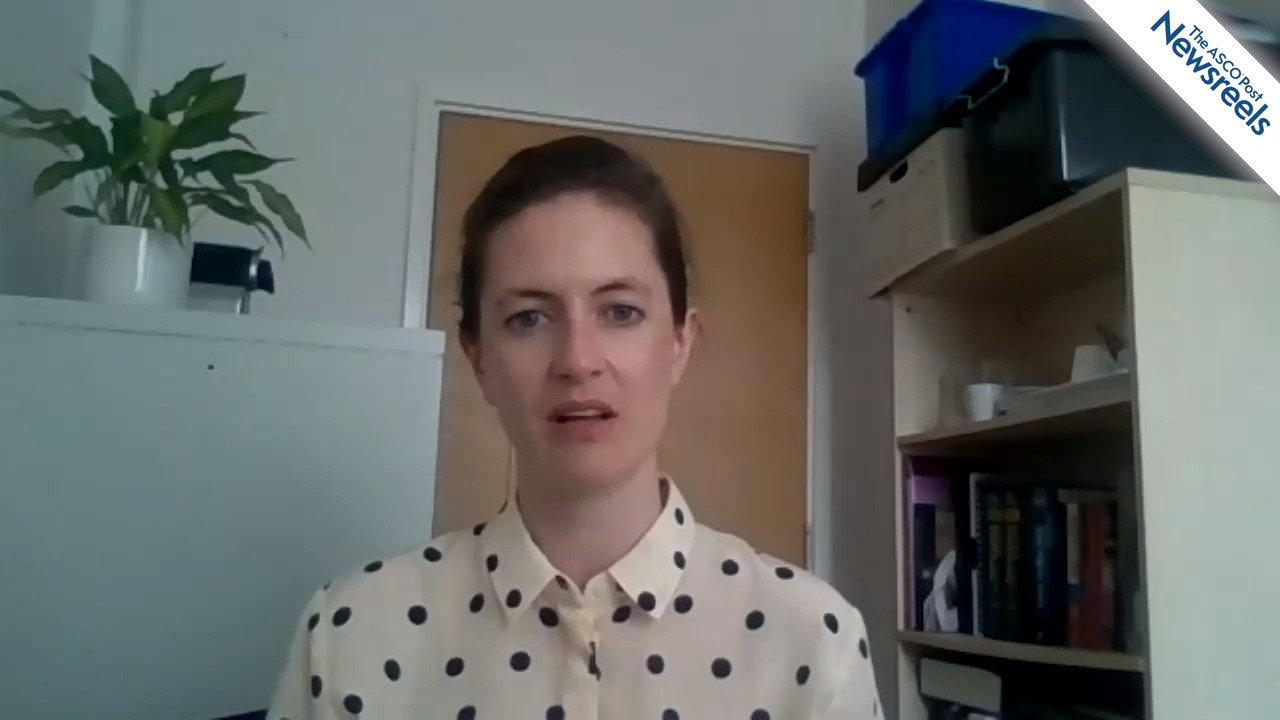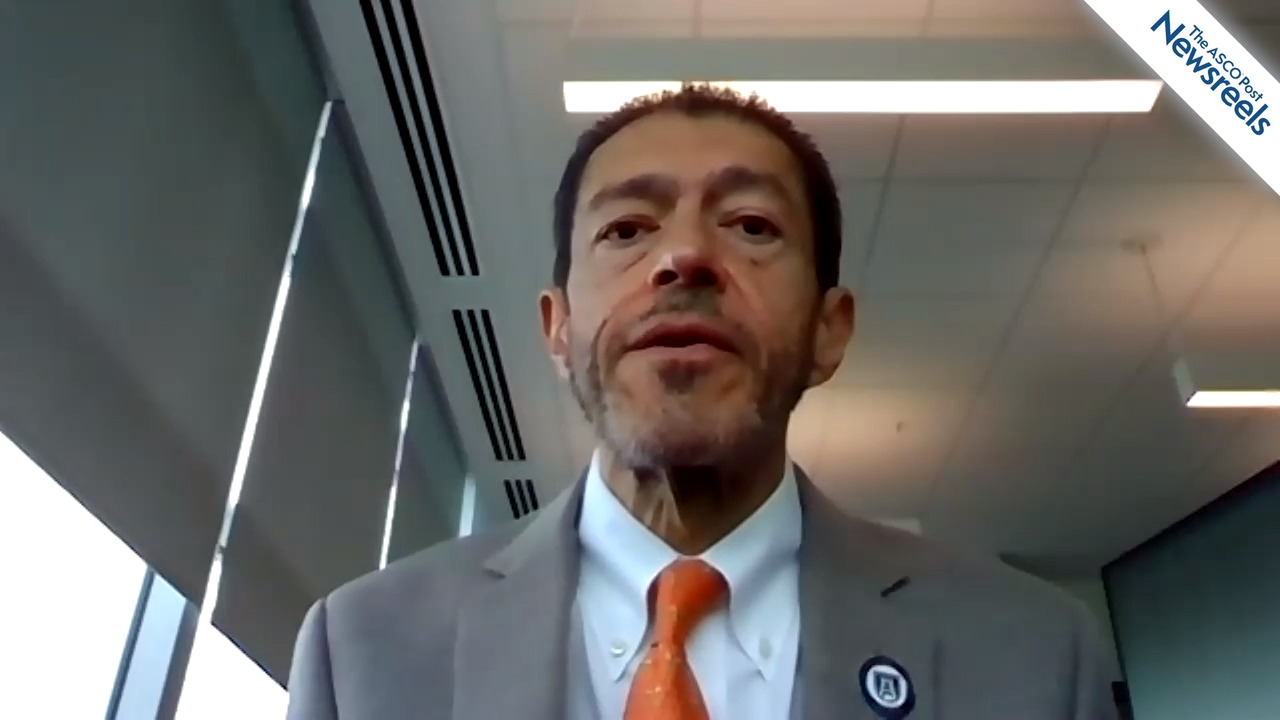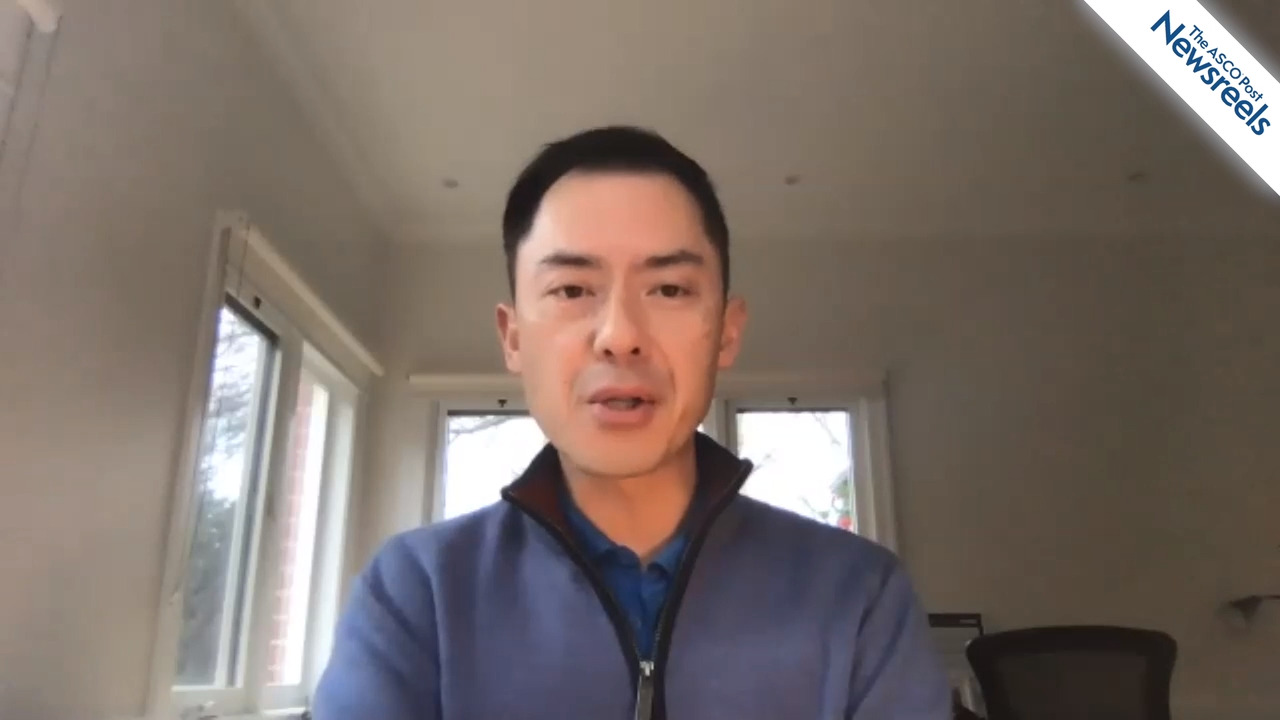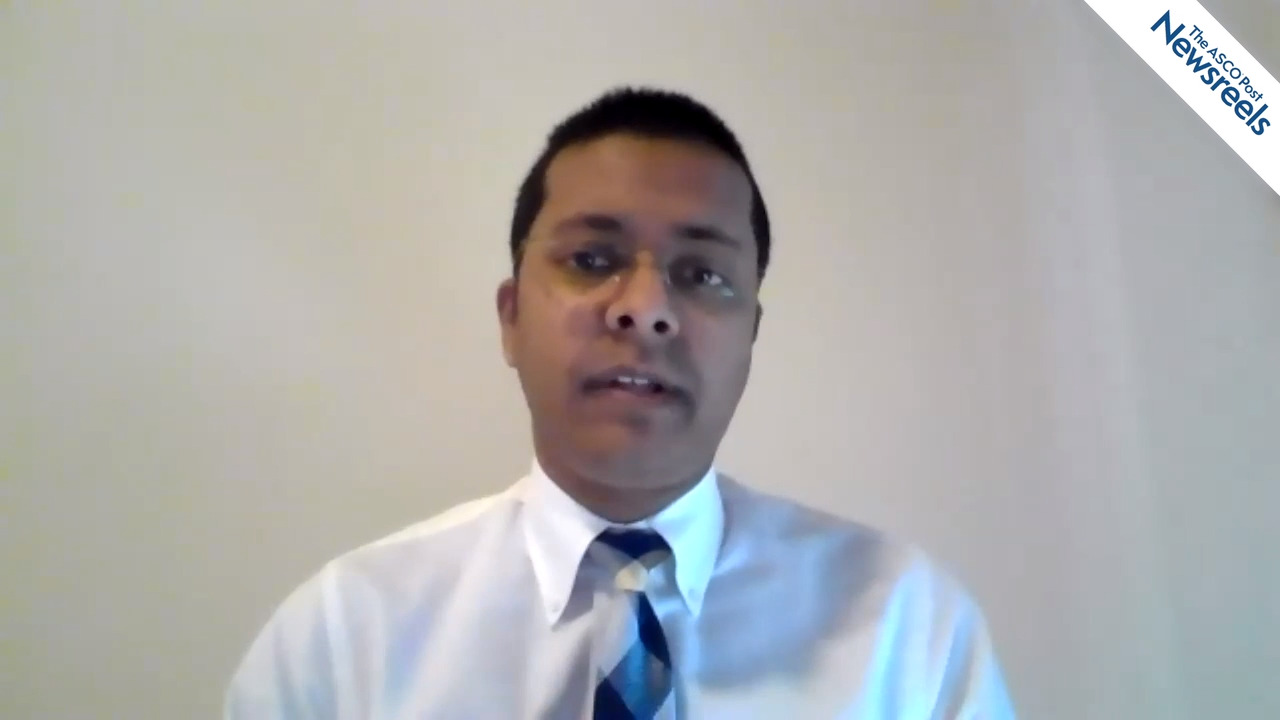Michael J. Dickinson, MBBS, DMedSc, on Non-Hodgkin Lymphoma: Early Study Findings With Novel T-Cell–Engaging Bispecific Antibody
EHA25 Virtual
Michael J. Dickinson, MBBS, DMedSc, of the Peter MacCallum Cancer Centre, discusses phase I dose-escalation study results on CD20-TCB, which showed activity, including durable complete responses, and manageable safety in heavily pretreated patients with relapsed or refractory non-Hodgkin lymphoma (Abstract S241).
The ASCO Post Staff
Elizabeth H. Phillips, MD, of the University of Manchester and The Christie Hospital, discusses phase II findings showing inotuzumab ozogamicin plus rituximab, cyclophosphamide, vincristine, and prednisolone is a feasible and effective regimen for front-line treatment of high-risk patients with diffuse large B-cell lymphoma who are not eligible for standard chemotherapy (Abstract S232).
The ASCO Post Staff
John C. Byrd, MD, of The Ohio State University Comprehensive Cancer Center, discusses the mature results of a phase II study showing durable remissions and long-term tolerability of acalabrutinib in treatment-naive patients with relapsed or refractory chronic lymphocytic leukemia or small lymphocytic lymphoma (Abstract S163).
The ASCO Post Staff
Jorge E. Cortes, MD, of Georgia Cancer Center, discusses interim results from the OPTIC study, which showed a trend toward dose-dependent efficacy and safety, and may provide a refined understanding of the ponatinib benefit/risk profile and its relation to dose. Mature data from continued follow-up may support an alternate dosing regimen for patients with chronic phase chronic myeloid leukemia (Abstract S172).
The ASCO Post Staff
Andrew H. Wei, MBBS, PhD, of The Alfred Hospital, Monash University, discusses phase III data from the VIALE-C trial, which appear to support the use of venetoclax plus low-dose cytarabine as a front-line treatment for older patients with acute myeloid leukemia, as well as for those who cannot tolerate intensive chemotherapy (Abstract S136).
The ASCO Post Staff
Abhishek Maiti, MBBS, of The University of Texas MD Anderson Cancer Center, discusses his analysis showing that 10-day decitabine and venetoclax led to superior outcomes compared with intensive chemotherapy in older patients with acute myeloid leukemia, with benefits most pronounced in people at high risk of treatment-related mortality (Abstract S141).





